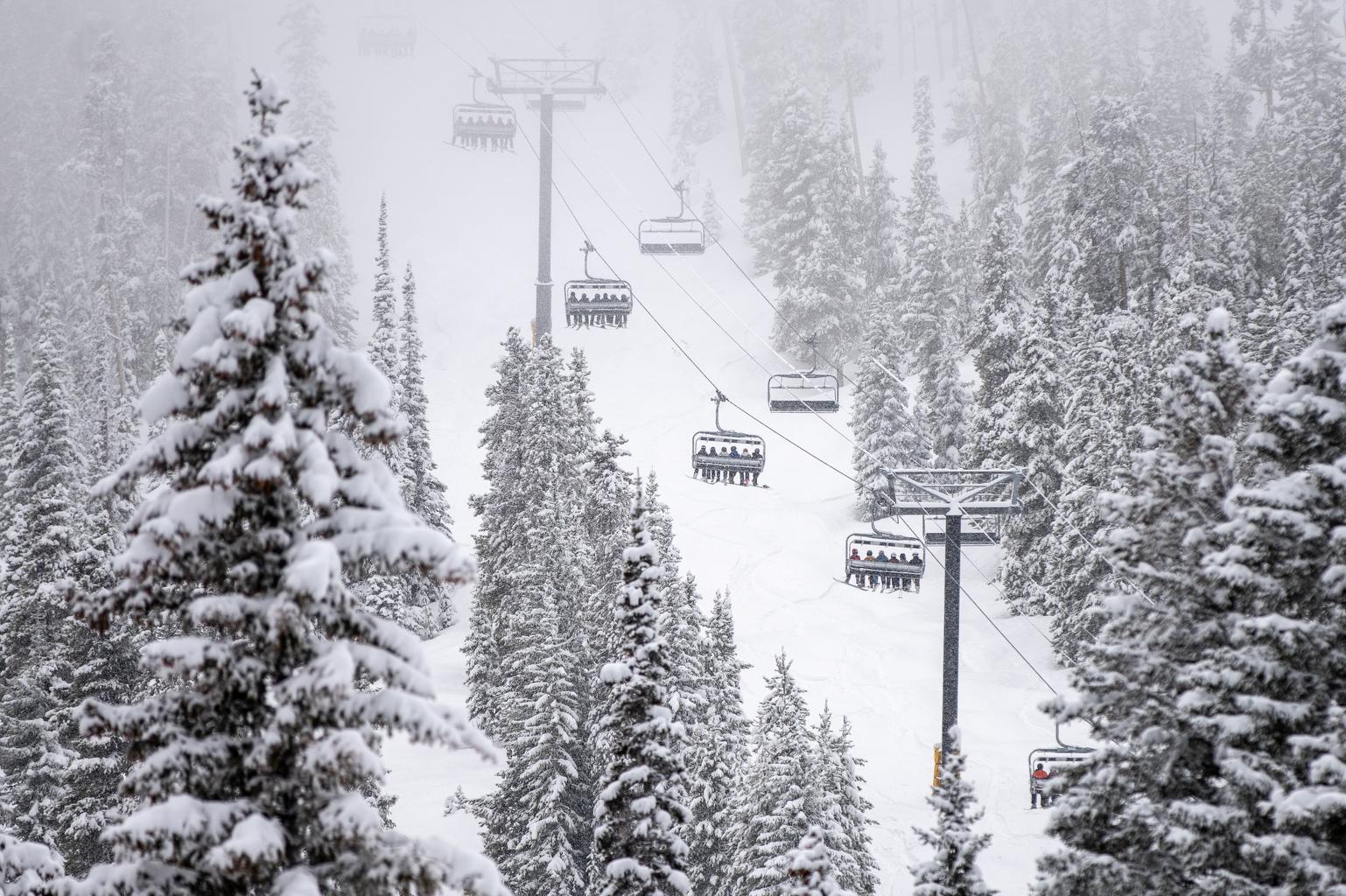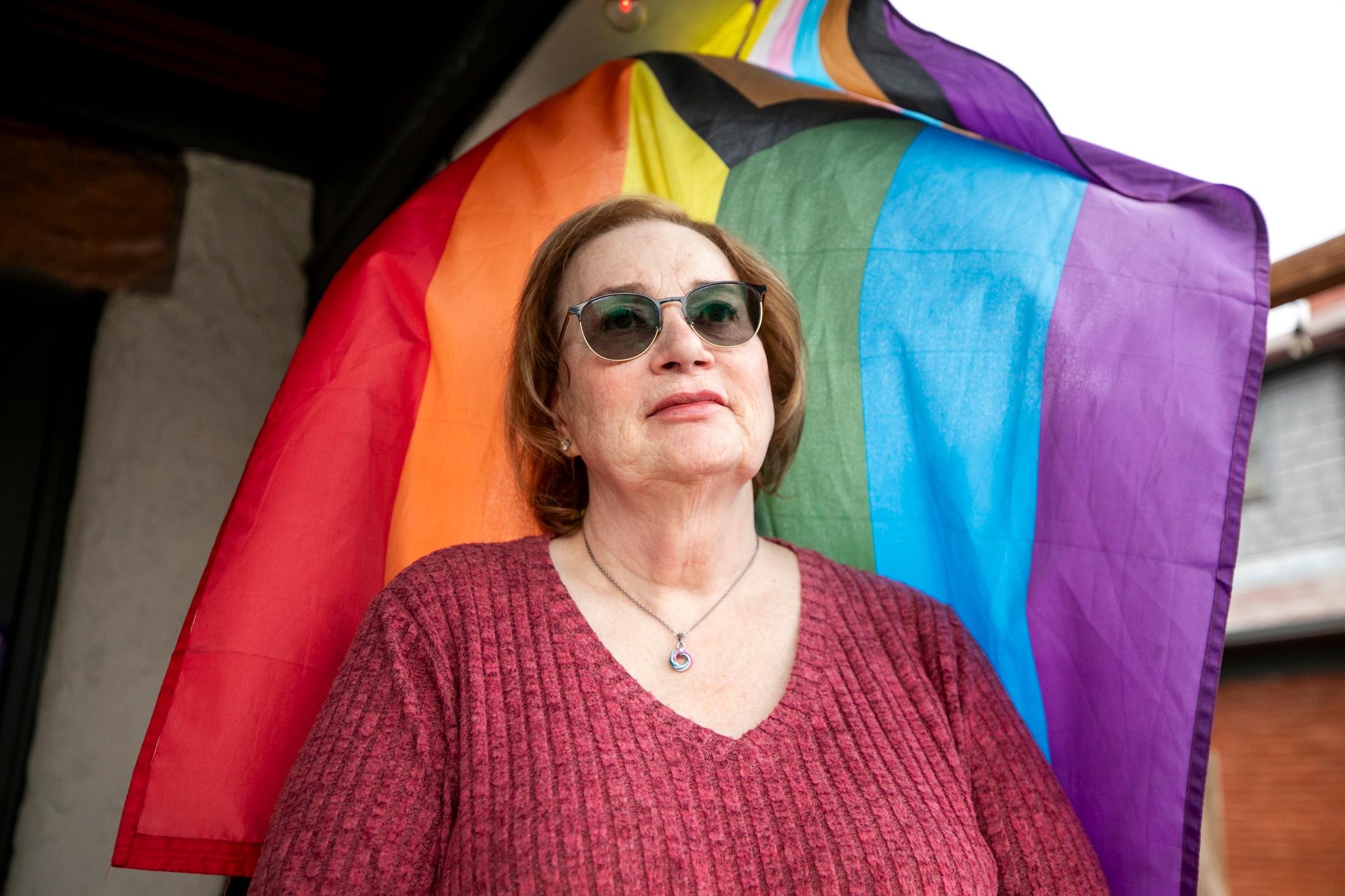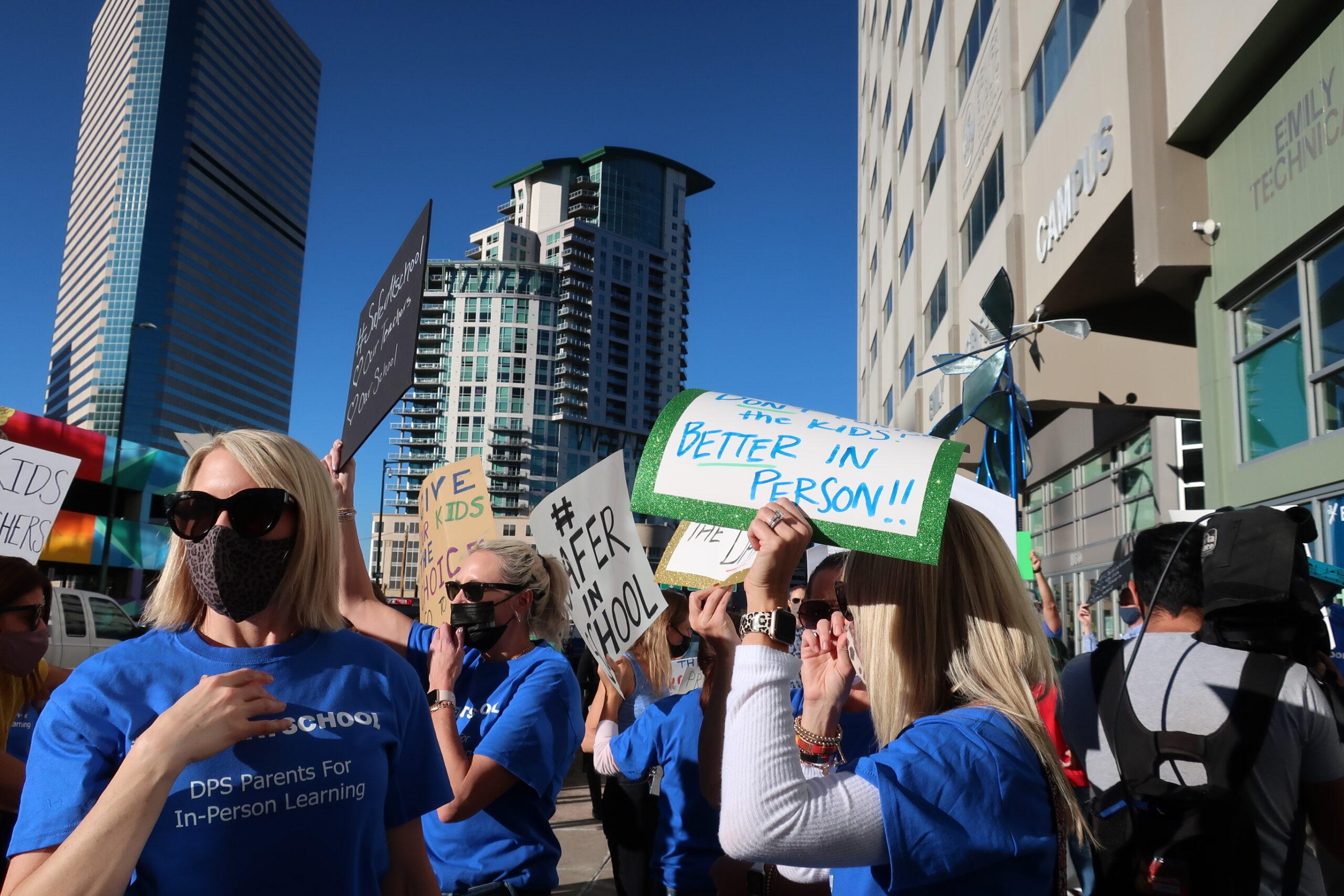
Updated 6:12 p.m.
Some parents of Denver Public School children have a message for district officials: Enough is enough.
About 80 parents joined a protest outside of district headquarters Friday afternoon, upset that the district ordered third- through fifth-graders back into remote learning starting on Monday. Most elementary school students had just returned to classrooms a week earlier — after spending months at home.
DPS middle and high schoolers never made it inside classrooms as skyrocketing COVID-19 infection rates in the community pushed the district to delay their turn to schools.
Preschool children through second grade will remain learning in-person because district officials argued they are developing readers and cannot read or type on a computer. Tyler Carlson, a parent of four DPS children, and a protest organizer, said his children are languishing after months out of school.
“Our children are being crushed by this,” he said, his voice breaking with emotion, during a Wednesday parent town hall meeting that attracted 500 parents. “I had to watch my fifth grader cry her way to school because she's going to be back spending eight more hours of zoom starting on Monday.”
He said the district is not considering the mental health of children, and that his children are falling behind academically.
“They're atrophying, emotionally, physically, and educationally,” Carlson said.
Parents are demanding that third through fifth graders return to in-person learning Monday.
They’ve set up a Facebook page, DPS Parents For In-Person Learning, that quickly gained more than 750 followers. The group says that if their voices are not heard, they are calling on third- through fifth-grade families to not participate in online learning Monday.
Rally organizer Tyler Carlson says he wants all families in all neighborhoods to have a choice as to whether or not to go to school in-person. He says schools play an indispensable role in neighborhoods across the city.
“Not only are they educating kids, they're counseling them, they're feeding them, they're the frontline for reporting abuse," Carlson said. "We are basically shutting down the most important institution that provides social cohesion.”
He said he'd like to see the mayor and Governor collaborate to make schools the top priority, over opening bars and restaurants.
Ariel Smith, with advocacy group Transform Education Now, which works with low-income families of color, says families are hesitant to go back to school, but they're also frustrated with remote learning.
She would like DPS to consider learning pods similar to those instituted in the Adams 12 Five Star school district. Students can learn remotely from the school building in small groups. They are monitored by school support staff who help answer questions and the model allows parents who need to go to their jobs.
“We really think that pods might actually be the answer to this because we don't see us getting out of this pandemic situation anytime soon,” Smith said.
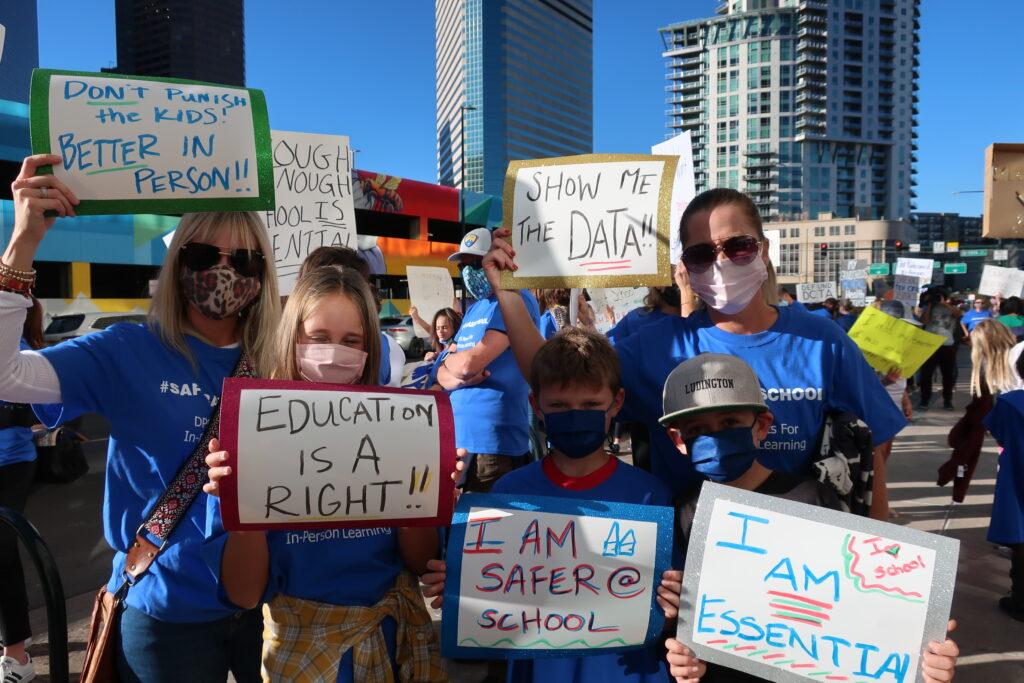
Kids also are sounding off on the plans.
Fifth-grader McKenna Tree, who attends Cory Elementary, says not interacting with other kids for months has been tough. She’s upset because she says she and her classmates were doing a “perfect job” of social distancing, washing hands, and sanitizing at school.
"I was super upset I don't think they gave us the chance that we deserved,” she said. “They should have at least given us two or three weeks to prove that they could do it but they only gave us four days.”
Many of the children at the protest said what they miss the most is their friends and say in-person learning provides a more challenging learning environment.
Fifth grader Kellen Sollenberger, also from Cory Elementary, carried a sign that said, "I learn better in person."
"My teacher can't come over to me and say, ‘Check this part, I don't think this is correct,' and then I fix my answer and this is right. I can't do that online."
His mother Lisa Sollenberger says DPS has not explained the health metrics behind their decision and she’s frustrated there is no plan of action.
“What's the difference between a second and a third grader, where did they decide that the second grader has a right to be in the building, but the third grader doesn't?”
District officials say they are as frustrated as parents and would prefer all children to be in school, but that they followed advice from Denver Health in the move. They say health officials have said that infection rates in some parts of the city are distressing. In the Wednesday town hall meeting, DPS communications director Mike Vaughn said the science indicates transmission levels in schools are low. But he said when infection rates grow in the community, “there’s a greater risk for disruption to the school year.”
“As cases find their way inside the school and there's needs for folks to go into quarantine and classes to be shifted to remote,” he said. “We felt like it was important to take these steps, to try and have the numbers in schools down so that there weren't massive disruptions to elementary schools throughout the school year.”
When too many teachers have to quarantine, officials have said, there are not enough replacements to keep kids learning inside schools.
Parents are frustrated that other Denver metro districts with similar demographics and the same rising COVID-19 numbers are pushing forward with keeping their younger students in school, such as Adams 12 and Mapleton school districts. They’re upset that DPS has reversed course multiple times about where children should learn during the pandemic. The district said there was evidence of very low infection rates among preschool through second graders and their teachers when announcing their decision to keep those children learning in person.
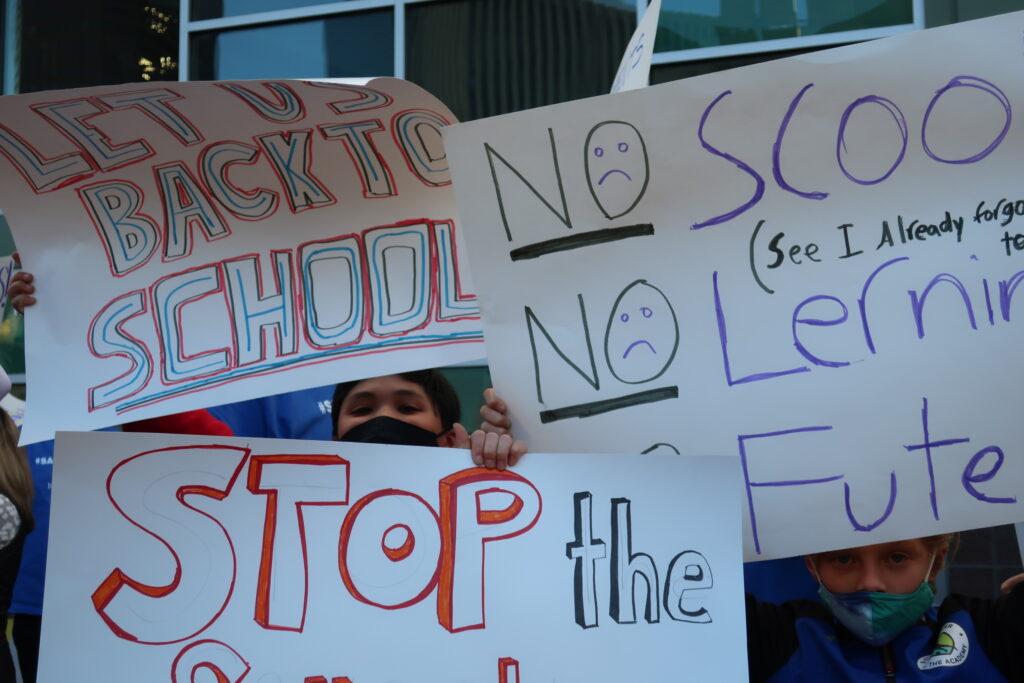
Parent Dana Schoonover is disappointed the district didn’t release more specific health data explaining why third through fifth graders will be returning to remote, while preschool through second graders will be allowed to stay in schools.
“We as parents really don't believe anything that is coming out of DPS right now,” she said. “People are going to start, if they can, moving to private schools, moving to other districts that we have seen do this successfully.”
Several parents said last week when they were back at school, it’s the happiest they’ve seen their children in months. Steele Elementary School parent Len Zheleznyak said his daughter was excited to go back to school, and that he’s angry that the district reversed course.
“She was just devastated,” he said. “She didn't eat dinner. She went to bed and I looked at her and I thought to myself, what kind of cruel human beings would play such a cruel joke on my child.”
The Demographic Divide In COVID-19 Rates
On “heat maps” of the city, COVID-19 infection rates are much higher in several of the city’s low-income neighborhoods, especially southwest and north Denver. Those neighborhoods are also home to more Black and Latino residents.
Council members representing those areas have said residents often have less ability to work at home and must report to work in “essential” jobs such as construction, health care, grocery store workers, and janitors. That could push COVID-19 rates in those areas up.
But maps show that schools in more affluent parts of the city have much lower infection rates. Parents there believe the “one-size-fits-all” mandate to return to remote is not working.
In a press briefing earlier in the week, Superintendent Susana Cordova said she knows some people may feel “cheated” of the opportunity to have in-person learning because their schools may not see much impact from COVID-19. School board members also shared their thoughts about the switch back to remote learning.
“We hear directly from our educators about how much they want to be back in our buildings with our students, and also about the serious concerns they have about health and safety,” said Denver Public School board members Carrie Olson and Rev. Brad Laurvick, in a release. “We spend many hours every week assessing the current health conditions, getting expert input and advice, and listening to and considering the full range of community perspectives.”
Two DPS virtual town halls are scheduled in the coming days for parents. One Friday evening in northeast Denver hosted by board members Tay Anderson and Jennifer Bacon, and one tomorrow for parents of southwest Denver hosted by Tay Anderson and Angela Cobian.



